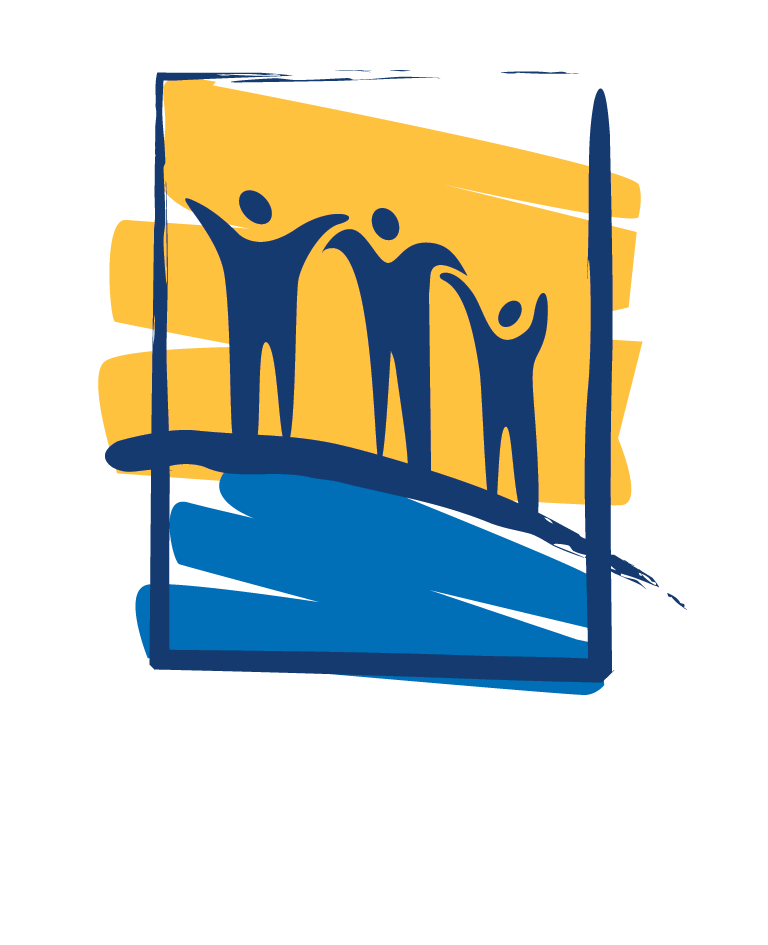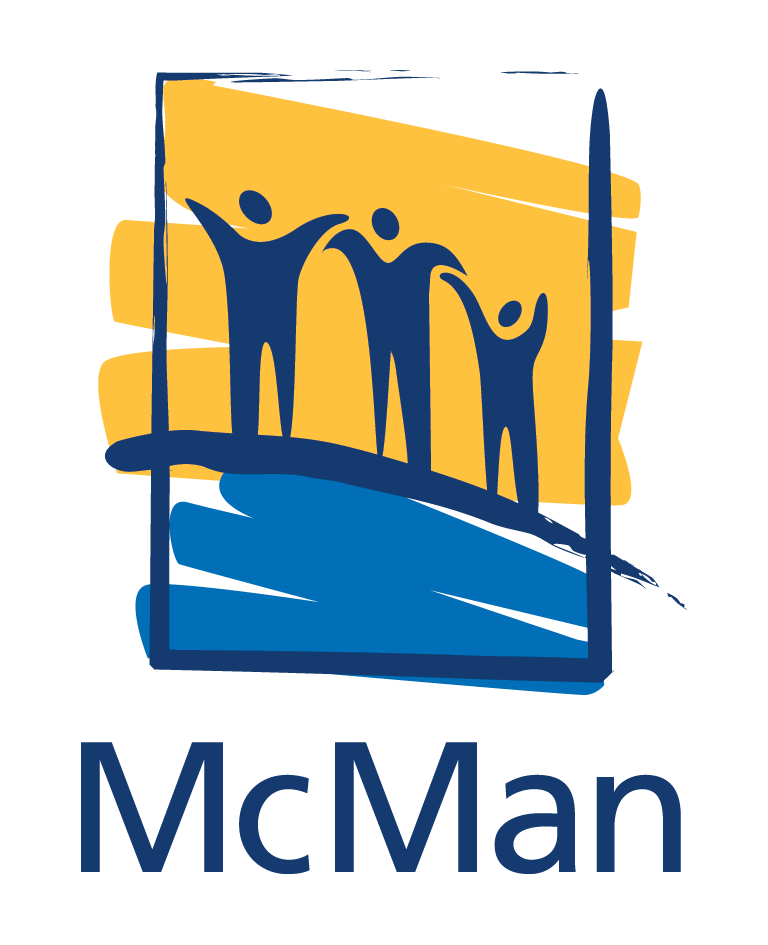Dialectical Behavior Therapy (DBT) Skills Training Groups
Mental health groups for youth and adults
About DBT Skills Training Groups
What is Dialectical Behavior Therapy – or ‘DBT’?
Dialectical Behavior Therapy (DBT) is an evidence-based treatment for individuals who significantly struggle experiencing, tolerating, and regulating their emotions. DBT has been found to be effective for people experiencing problems such as: depression, post-traumatic stress disorder (PTSD), attention deficit hyperactivity disorder (ADHD), and disordered eating. DBT is grounded in mindfulness and focuses on balancing the need to change while validating and accepting where individuals are on their journey.
At McMan Calgary & Area, we offer DBT Skills Training which is one mode of support within a comprehensive DBT treatment program. This 12-week skills training teaches specific skills to increase an individual’s capabilities to cope with emotions and experience life differently than they currently are. The skills are taught in a group setting to allow for individuals to learn from each other and provide a forum for practicing skills in the moment. The group format resembles a classroom more than a therapy session. Group facilitators provide teachings and new information, and members participate in discussion and hands-on practice of the skills.
What to Expect in Group:
- If it’s a virtual group, your camera must be on. We want to see your beautiful face, confused expressions, and nods of understanding.
- If it’s an in-person group, there will be snacks, fidget tools and hands on activities to help you learn.
- Expect to participate. We expect you to ask and answer questions, share relevant examples from your life, and join in when we do hands on projects.
- There will be homework. It’s the fun and helpful kind of homework. Each week you will be expected to practice the skill you learned outside of group in your everyday life, write it down and share it in group.
- Expect to learn new ways of living and coping.
- Expect to be pushed a little bit outside your comfort zone while we honor and commend you for being exactly where you are.
What DBT Skills Training is Not:
- Our DBT Skills Training groups are only 1 mode of treatment in a full comprehensive DBT program. You will not receive individual DBT therapy sessions or phone coaching at McMan. We do not offer a full comprehensive DBT program.
- It is not group therapy. In a DBT Skills Training group, the focus is on teaching you new skills, not on discussing your symptoms or processing your emotions. It’s much more like a class than a therapy session. For this reason, it is recommended (yet not required) you also see an individual therapist while attending DBT Skills Training group.
- It’s not magic. You get out what you put in. Coming to group every week is only part of what is required to make meaning change in your life and mental health. The other parts involve practice, practice, practice.
Frequently Asked Questions
How much does it cost?
Currently, a group is $1,095 for 12 2-hour sessions.
Cancellation policy:
Program fees are non-refundable. Cancellations or withdrawals from the program will be refunded, on a pro-rated scale for the 12-week program, in the event of unforeseen circumstances preventing an individual from completing the program. Please note that there will be a non-refundable administration fee of $100.00 in addition to per session costs associated with any withdrawal from the program. Options to transfer to future groups or different platforms (in person or virtual) may be considered with regards to best fit and/or emergency circumstances and evaluated on a per case basis.
I heard your group was free. Why isn’t it free anymore?
Thanks to some generous donors, we were able to run our DBT Skills Training groups at no cost for many years. However, offering such a service for free is not sustainable long term so we introduced a fee at the end of 2021.
What if I can’t afford the registration fee?
We understand the cost of group can be a barrier for some to access the group and support they need. For this reason, we have implemented a fee assistance program. Please contact dbt@mcmancalgary.ca to request an application if you need assistance in covering a portion of the group fee.
How many people will be in the group?
The maximum number of participants in a group will be 12 and the minimum is 6. There will also always be two group facilitators.
Who might not be a good fit for group?
Although we truly believe that DBT skills are helpful for all humans, the group setting is not a good fit for everyone. Anyone experiencing recent psychosis, intense and frequent suicidal thoughts without an individual therapist or unable to focus for a period of 2 hours, would be encouraged to look for other mental health supports and services before our DBT Skills training groups. If you are not able to commit to attending all 12 sessions, we would also recommend you consider joining our groups at another time.
What training do the facilitators have?
The lead facilitators have a Master’s degree in social work, psychology or counselling and are trained and experienced therapists. Co-facilitators have at least a Bachelor’s degree.
All facilitators have completed training on DBT Skills through Marsha Linehan’s Behavioral Tech. McMan’s lead clinician, who creates the curriculum and oversees the program, has taken intensive training in DBT and is a DBT therapist.
Is there a group for parents to learn these skills?
Currently, we do not offer a group for parents. However, if your teen is enrolled in the Skills Training group for teens, we do offer optional ‘friends and family’ sessions that give you the chance to learn all the fabulous and effective skills your teen is learning. These sessions are $80 each.
What if I get anxious in social settings? Can I learn these skills one-on-one with a facilitator?
Almost everyone who attends our DBT Skills Training groups report they were so anxious at the start they did not want to come. Feeling scared, nervous or like you know you need this but absolutely don’t want to do it are pretty normal. If that’s you, you’ll fit right in!
DBT skills can be taught individually on a one-to-one basis, however, that is not a service we provide at McMan. It is also not how Marsha Linehan designed and tested the efficacy of DBT skill delivery. When you learn the skills in a group setting, you are also learning how to interact and get along with people, how to manage some of your emotions in tough moments and hearing from others who have experienced similar challenges as you. The group setting is a powerful catalyst to learning more than just DBT skills.
What does ‘dialectical’ mean?
A dialectic is the idea that two opposing ideas can both be true. It refers to a synthesis or integration of opposites and when held together, they create a new truth. It also encompasses the belief that there is no absolute truth, there is always more than one way to look at something and change is the only constant. DBT is based on balancing the dialectic between acceptance and change. At its core, DBT validates and honors where the individual is currently at and asks them to work harder and be more motivated in order to make changes.
Upcoming groups:
Adult (18 +) Skills Training:
April 28, 2025, to July 28, 2025
Upcoming Adult Group: TBA
Teen (13-14) Skills Training:
July 13, 2025 to August 24, 2025
6-Week Summer Essentials
- In person, Sundays from 10:00am – 12:00pm – NOW REGISTERING
(No class August 3.)
Teen (15-17) Skills Training:
July 13, 2025 to August 24, 2025
6-Week Summer Essentials
- In person, Sundays from 12:30pm – 2:30pm – NOW REGISTERING
(No class August 3.)
To begin the registration process, please visit our online booking portal linked below.
If you have any questions about the DBT Skills Training groups, or wish to be added to our interest list for the next set of groups, please contact: dbt@mcmancalgary.ca



